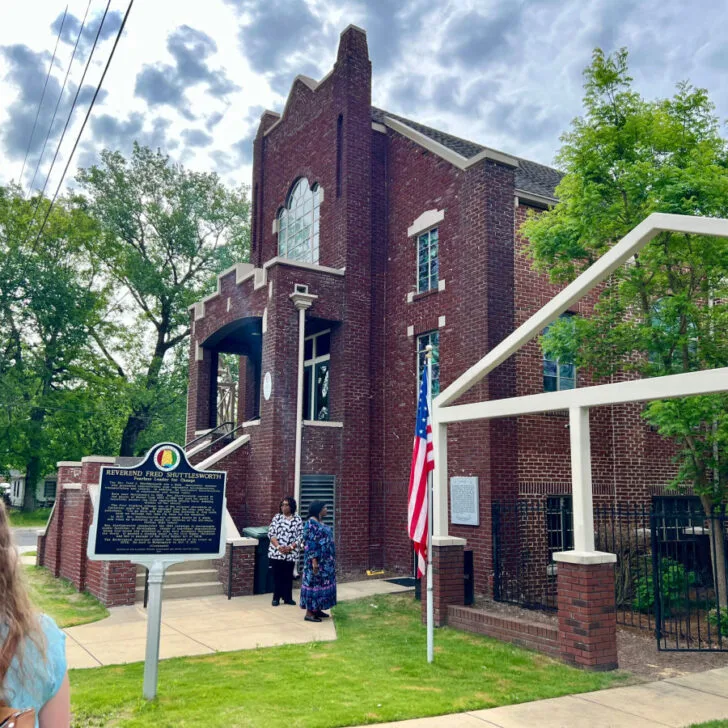Civil rights are fundamental to the history of America and continue to be a pivotal topic in contemporary society. Despite the progress that has been made, there is still so much work to be done. If you want to learn more about this topic and experience some of the most significant events and measures in the Civil Rights Movement, you must plan a Civil Rights Road Trip to Alabama.
This state played a vital role in civil rights history, and it would be an excellent educational opportunity for adults and children alike. In this blog post, we’ll show you how to explore the movement with a civil rights road trip to Alabama and what visitors should see in Birmingham, Montgomery, and Selma.

Alabama African-American Civil Rights Heritage Sites
A consortium collaboration was created to link 20 places of historical value that helped shape the Civil Rights Movement. Amongst those are churches, hotels, and other places that harbored the struggle for freedom. Many are from the 1950s and ’60s, offering a look at the important areas and speakers or activists who lived through the dicey period.
Alabama was the hotbed of all the action during this time, so there is no better place to get a firsthand understanding of these Civil Rights Heritage Sites than here on these hallowed grounds.

There is way more to do in Alabama other than Civil Rights Sites. Here are some of our favorites.
Exploring Birmingham
Birmingham, Alabama, in the 1960s, epitomized extreme racial segregation. Nonviolent protesters endured brutal mistreatment, forever altering the course of history. Start your Civil Rights road trip to Alabama here and discover the movement’s epicenter. Birmingham, once the nation’s most segregated city, witnessed racially motivated violence.

Bethel Baptist Church
Start your Civil Rights road trip to Alabama at the heart of the Civil Rights Movement, the Historic Bethel Baptist Church in Birmingham. Bethel Baptist Church is one of the most significant landmarks in the civil rights movement, serving as the SCLC’s location in Birmingham and hosting Dr. King in his first civil rights speech in 1956.
The Church still stands today as a powerful symbol of Dr. King’s legacy and is open for tours.

16th Street Baptist Church
The 16th Street Baptist Church was an essential location during the Civil Rights Movement and still holds deep meaning to those who fought for change. It was at this church that a group of white supremacists bombed it on September 15, 1963.

This act of violence resulted in the deaths of four young girls attending Sunday School. It was an unforgettable tragedy and a pivotal moment in America’s history. Today, visitors can take guided tours of the church and learn more about its story. The shocking act further spurred the civil rights movement.

Civil Rights Institute
The Birmingham Civil Rights Institute, which houses exhibits and collections about the civil rights movement, is undoubtedly one of Birmingham’s most famous attractions. It covers 58,000 square feet and is a wonderful place to learn about the movement’s history.

Some of the significant elements you can experience there include the historic Ku Klux Klan meeting place, the burned bus that Freedom Riders once rode, and some of the actual jail cells that were part of the movement. It is a moving attraction that you could seriously spend hours in. Tickets are $15 for adults and $13 for kids ages 4 to 12.
Pro Tip: Bring tissues; you’ll need them.

Kelly Ingram Park
Well known for the “Four Spirits” sculpture that commemorates the four girls who tragically died in the church bombing, Kelly Ingram Park is another must-see attraction in Birmingham. Its significance lies in that this park served as the stage for many Civil Rights Movement events, protests, and demonstrations.
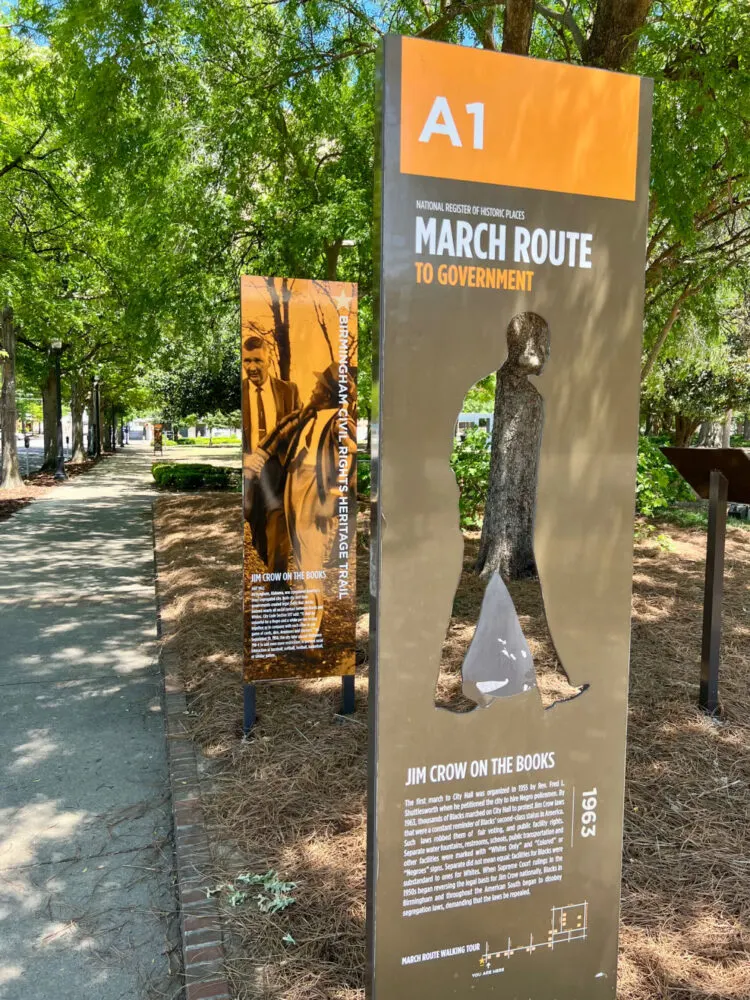
The park relays much of the movement’s stories and is a great spot to reflect on the progress made. A startling thing to acknowledge and reflect on is the passage you walk through with the sculptures of aggressive dogs held by the police that were unleashed on peaceful protesters, including children.

Extend your time in Birmingham by stopping for a delicious meal. Here are some of our favorite Birmingham eats.
Exploring Montgomery
Your time in Montgomery should include a stop at the Dexter Avenue King Memorial Baptist Church. This place is priceless, as Dr. Martin Luther King Jr. started his civil rights activism and work while pastoring this church. It is also where the 1955-56 Montgomery bus boycott was planned and staged. This boycott was the first locally initiated mass protest against racial discrimination and became the mold for future stagings.
Visitors can learn a lot about Dr. King’s life at the Dexter Avenue King Memorial Baptist Church, his advocacy, and the speeches he delivered from here. The church offers a guided tour with many fascinating facts and stories that will leave anyone humbled.
Other noteworthy mentions in Montgomery are the Dr. Richard Harris House, Ben Moore Hotel, Mt. Zion AME Zion Church Memorial, and the Jackson Community House and Museum.
While there, you can’t miss visiting the beautiful Alabama State Capitol.

Discovering Selma
Selma has a remarkable Civil Rights Interpretive Site and a National Parks Service attraction, which will take 45 minutes to an hour to go through. With interactive exhibits, memorable speeches, and multi-media presentations, the Selma Interpretive Center honors those who fought and lost their lives while fighting for equal voting rights. They also sell souvenirs and have great literature.
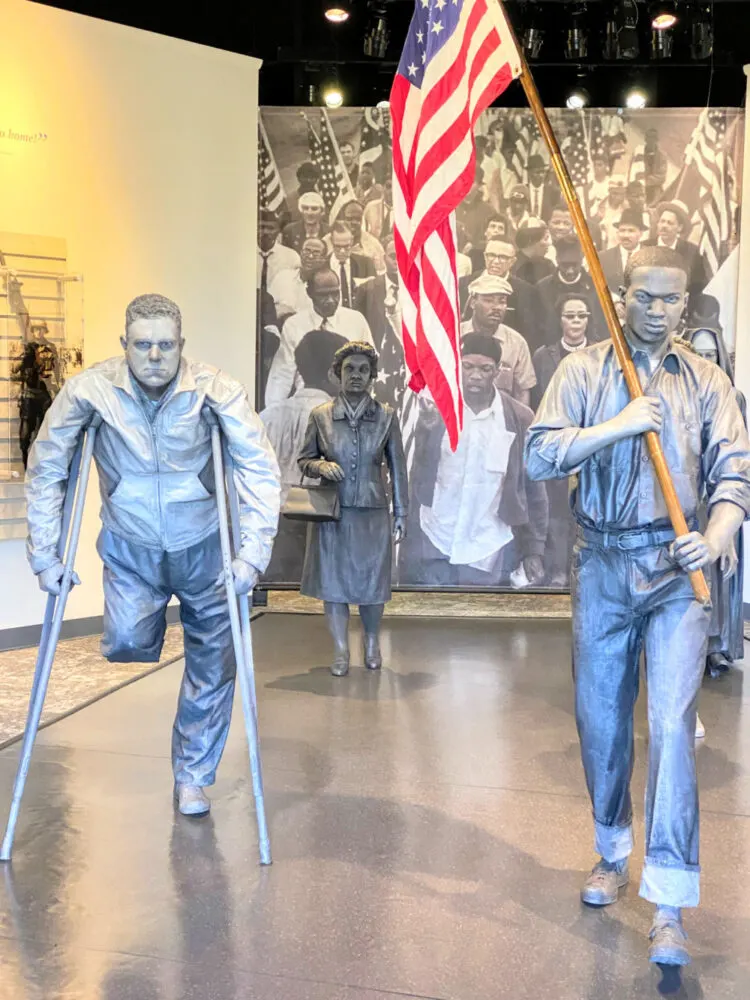
Pro Tip: Don’t forget to get your National Parks Passport book stamped at these NPS sites.
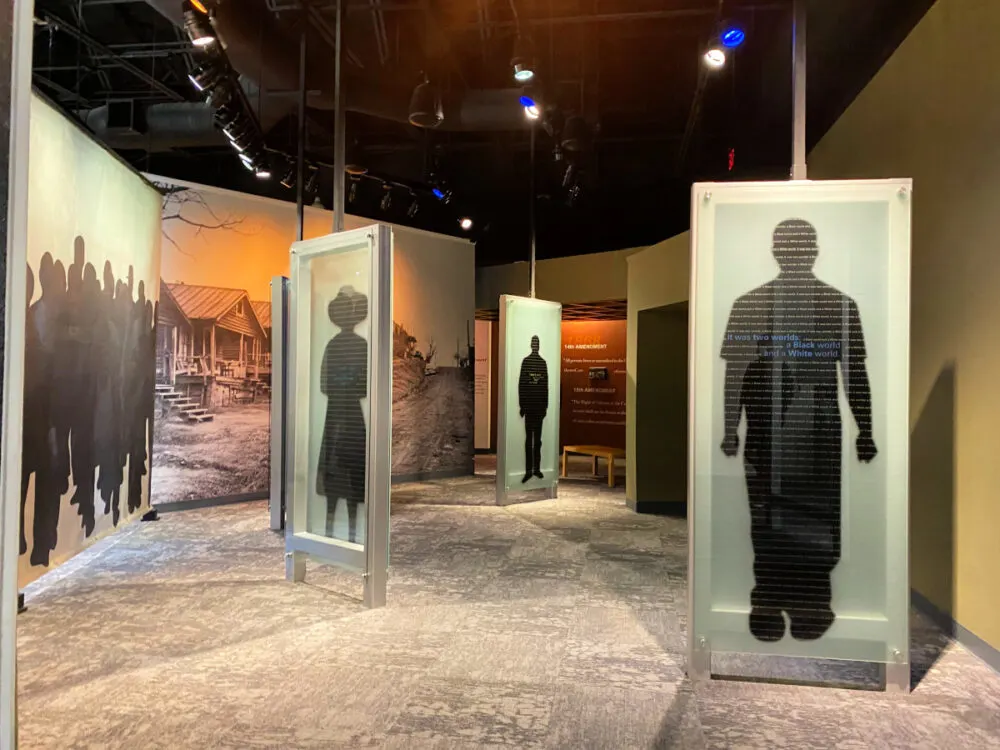
I did a live Facebook video while walking across the Pettus Bridge in the heart of winter. This is where so many innocent and unarmed men and women were brutally beaten by police as they tried to protest their situation peacefully. My tears nearly froze on my face from the emotion I was experiencing.
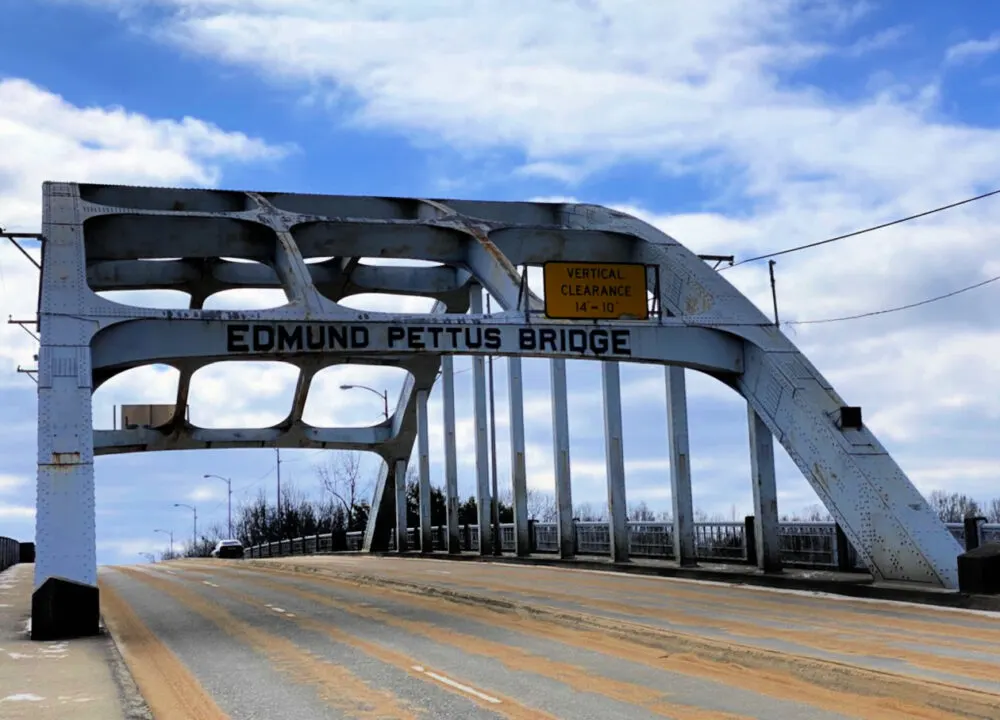
Then, experience the Brown Chapel AME Church, where the brutal Bloody Sunday March began the famous 54-mile march from Selma to Montgomery. This historic venue kept its doors open and provided shelter for those amid the racial war while disregarding state and federal court injunctions. Tours are offered but are by appointment only.

Other places to consider visiting in Selma are the Historic Tabernacle Baptist Church and the Sullivan and Richie Jean Sherrod Jackson Museum, which Booker T. Washington visited, Dr. Martin Luther King, Jr., and Dr. Ralph Bunche.

How to Introduce Kids to the Topic of Civil Rights
Feeling unsure about how to introduce children to civil rights can be understandable. The following tips can make it easier:
- Start by reading books about civil rights and influential historical figures like Rosa Parks, Dr. Martin Luther King Jr., and Nelson Mandela.
- Take your children to historical sites and museums. These places can be interactive and stimulate children’s curiosity, questions, and discussions. One of the best is the National Civil Rights Museum in Memphis, located at the former Lorraine Motel, where Civil Rights leader Dr. Martin Luther King Jr. was assassinated on April 4, 1968.
- Have open discussions with your children about race, the importance of acceptance and tolerance, and standing up for what is right.

Conclusion
Alabama is a great state to study the Civil Rights Movement. With so many significant sites, museums, and stories, visitors can gain valuable knowledge and insight into this essential period of American history.
It can be a wonderful educational opportunity, a chance to reflect on our society’s progress, and an opportunity to stimulate meaningful conversations about how we can continue to work towards a more just and equitable society.


